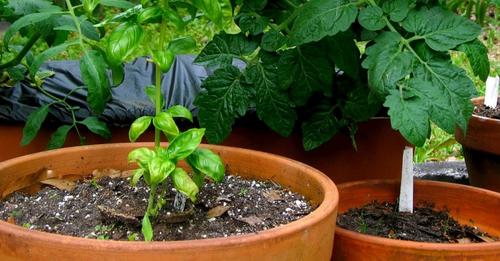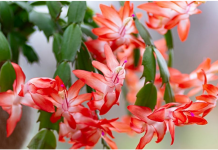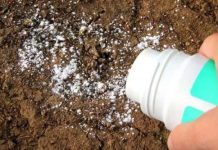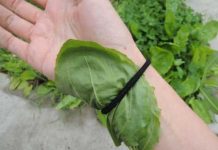Whether you naturally have a green thumb or learned everything you know by researching, whether you’ve been gardening for years or you’re just starting, every home gardener can use the best tips and tricks out there to grow flowers, fruits, and vegetables more successfully.
Now, those tips and tricks can vary quite a bit, but our favorite lately? Learning about unexpected and all-natural helpers we should have on our gardening team! Today, we’re bringing a longtime indoor helper outside and into the gardening light: vinegar. Just check out all the wonderful things that happen when you start using it in your gardening.
- Weeds die— but your flowers flourish.
Mike MozartIf there’s one reason to use vinegar in your garden, this one is it! Perfect for gardeners who prefer to use safer, all-natural weed killers, vinegar is also any easy one to use. Simply put in a spray bottle, aim carefully at the weeds, and you’re all set!
- Blooms are brought back to life . . .Vinegar’s not only for killing unwanted greenery; it’s for resurrecting the ones you put there on purpose! If your favorite flowers and bushes are falling to fungus infections or black spots, fear not— vinegar can help resurrect them.Exact methods vary from source to source, but for the simplest way, simply mix 2 teaspoons of vinegar into some brewed chamomile tea, and spray it on the affected plants. They’ll be healthy again in no time!
- . . . and particular plants are made happy!It sounds crazy since it’s also a powerful natural weed-killer, but there are some plants that absolutely love vinegar, like azaleas, rhododendrons, hydrangeas and gardenias. Just mix a cup of distilled vinegar in a gallon of tap water, and spray these acid-loving plants to give them a boost.
- Your soil gets souped-up.
Christopher SessumsDon’t feel entirely comfortable spraying vinegar, however distilled, onto your favorite plants? Use it to boost the acidity of your garden’s soil instead! (It’ll add some much-needed iron, too.) If water in your area is hard, or if you have a lime problem, this solution’s for you.Simply pick your preferred method: add some distilled white vinegar to your watering can; add vinegar directly to any areas with lime deposits; or mix 1 cup of distilled vinegar per gallon of tap water, and use the mixture to water the soil.
- Seeds get an extra head start.Have you ever eagerly planted seeds, imagining a garden full of tasty bounty come fall, only to have them simply sit in the ground and never bud? It happens more often than you might think! Some plants, like asparagus, okra, morning glories and moonflowers, are simply more difficult to germinate.Vinegar can fix this problem! All you have to do is gently rub the problematic seeds between sandpaper, then soak overnight in a mixture of 1 part vinegar to 4 parts warm water, with a splash of liquid dish soap. Plant as normal, and soon, you’ll see the first green shoots!
- Your clay pots pep up . . .Clay and terra cotta pots are classics for a reason, and plants flourish in them and the cool soil they provide. But after awhile, they absorb calcium, salt and other minerals, and lose their naturally-hued luster in the process. Luckily, a good soak in a half-vinegar, half-water solution will clean them right up.
- . . . and your shovels have a new shine . . .
PleuntjeSomething else vinegar can clean? As any frugal, DIY-using home cleaner can tell you, just about everything— including garden tools! If yours have been become rusty after long wintertime disuse, or simply could use a shine, spray or soak them in vinegar. Rinse them off, and they’ll look like new.Extra bonus benefit? Vinegar, as we know, acts as a natural fungicide, so spraying or soaking your shovels and rakes after use will prevent anything from taking root, and help to stop cross-contamination between your different beds and plots.
- . . . and pretty much everything gets a new lease on a clean life!Basically, when you want to clean your garden equipment and give every tool a fresh start, vinegar is your best friend. Use it to clean planters, pot saucers, and bird baths, to soak rust off of hose spigots, screws, bolts and other tools, and to sanitize outdoor and/or patio furniture.
- Flowers last longer indoors, too.It’s a true gardener’s dilemma: leave flowers outside where they can have a long, healthy life and visit them occasionally, or bring them inside you can admire them even on rainy days, but cut their lifespan short. Vinegar helps make the tough decision much easier by helping to preserve cut flowers!All you need to do is pour about a quart of water into your favorite vase, then add 2 tablespoons of white distilled vinegar and 1 teaspoon of sugar. Pop in fresh-cut flowers – or even droopy ones that need reviving! – and watch them perk right up.
- Your pets will know to stay away . . .
G-TinnetjeIf you have dogs or outdoor cats, you know how tempting a fresh garden bed can be to them— and the damage they can do when they decide to snuggle up beneath the flowers! Happily, you don’t have to constantly try to ward them off while you’re doing your planting or banish them inside, because you have vinegar on your side.All you need to do to discourage Fluffy and Fido is soak some old T-shirts or other pieces of clothing in white vinegar, then place them on some wood stakes around your garden. Replace every 6 to 7 days, and the smell will keep your pets to their part of your yard.
- . . . and so will wild animals.Just because an animal isn’t a pet doesn’t mean we want to hurt it to get it to stay away from our fruits, flowers and veggies. After all, as much damage as they do, who would want to hurt a rabbit?! Make the bunnies hop away the natural way by soaking a corncob or two in full-strength vinegar overnight, then placing them around your garden and replacing them every two weeks. Peter Cottontail will give your peas and beans a wide berth after that!
- Your fruit trees will be protected.Of course, not all uninvited visitors to your garden are fuzzy, cuddly and adorable. If you’re an ambitious or lucky gardener with some fruit trees, you’re probably plagued by fruit flies. Trap and kill them, in a similar manner to the way you would indoors, with some vinegar.Mix 1 cup of water, ½ cup cider vinegar, ¼ cup sugar and 1 tablespoon of molasses. Pour an inch of the mixture into 2 or 3 old lidless tin cans, and hang them on your tree. Check and refresh them regularly, and you’ll see that the fruit flies are no match for your vinegar solutions. (It works on moths, too!)
- Creepy crawly invasions will be no more.
hobvias sudoneighmMore pests you can ward off with vinegar? Ants, slugs, snails and other insects! Vinegar is a natural insecticide, so you can spray it around the borders of your garden and along the threshold to your home to warn them away, or even eliminate an ant hill by pouring white distilled vinegar directly into it.It’s not pretty, but to save your vegetables, killing slugs and snails is also necessary. You can kill the garden-destroying pests the natural way just by spraying them directly with vinegar. As always, be careful where you aim!
So many useful ways of using vinegar every home gardener needs to know! How many of them have you heard before? Have you ever tried any of these tricks? Are there any other ways to use vinegar outside that you think should be added to this list? If you have a green thumb, share!
SOURCES
- Balcony Garden Web
- wikiHow
- The Orchid Care Lady










